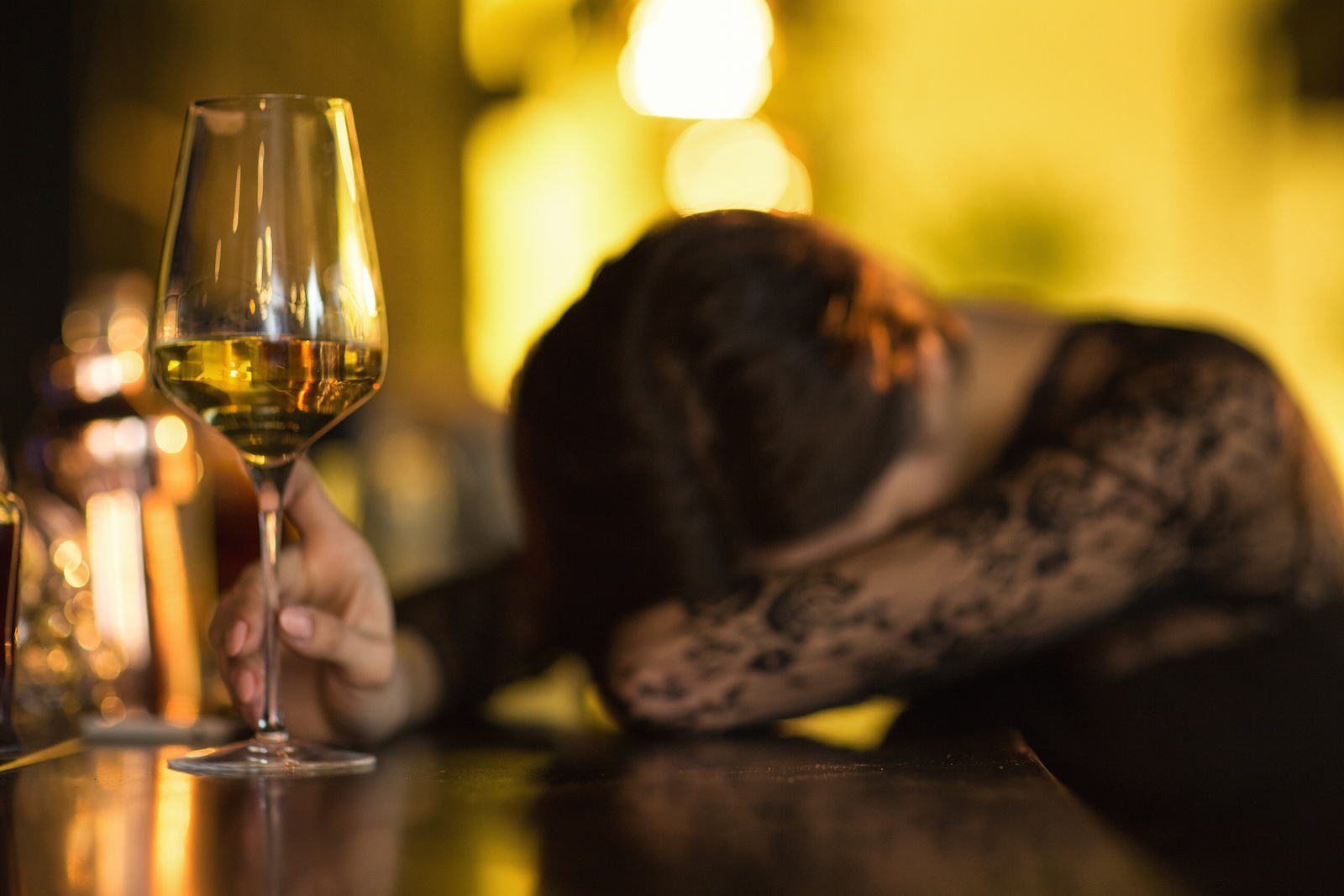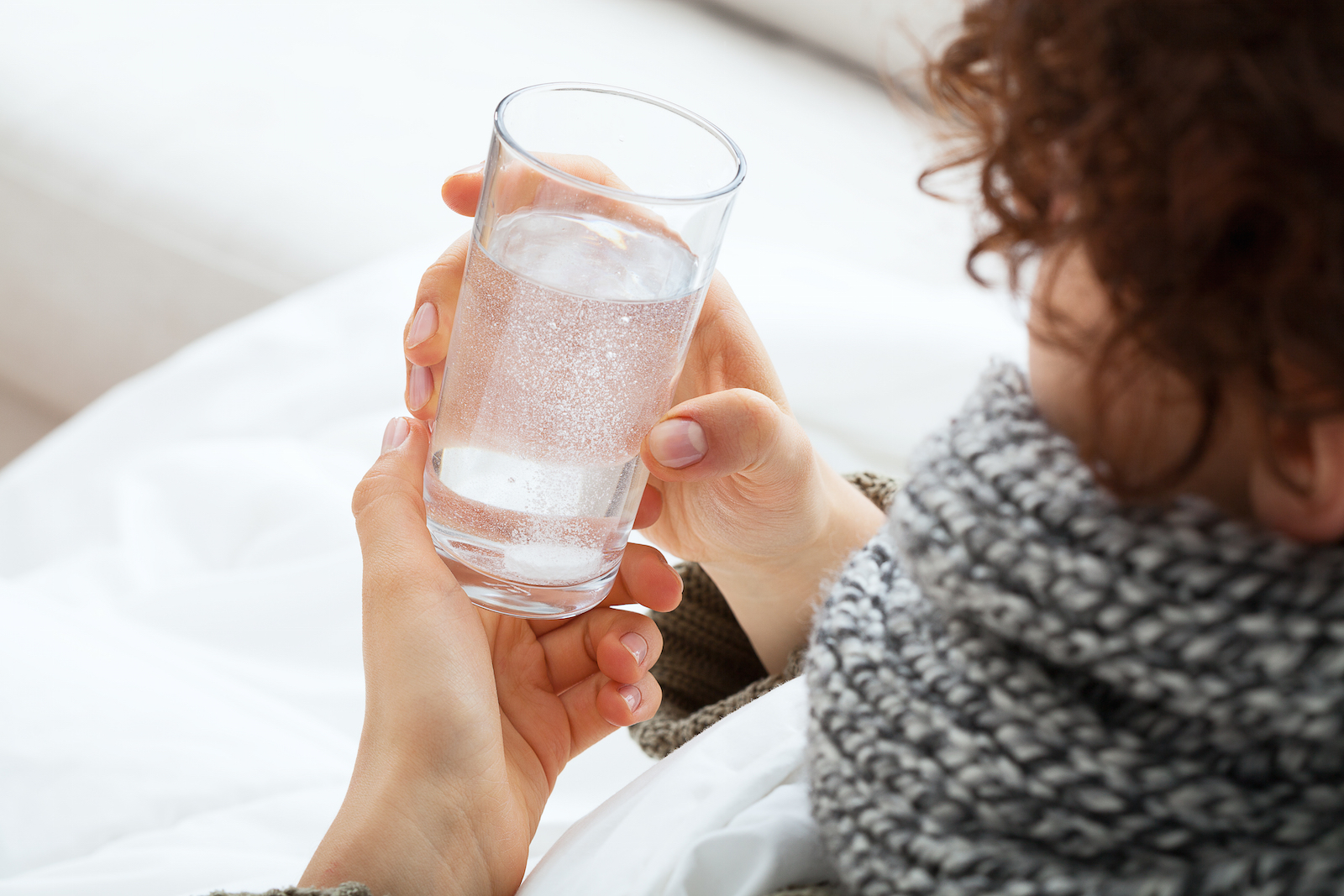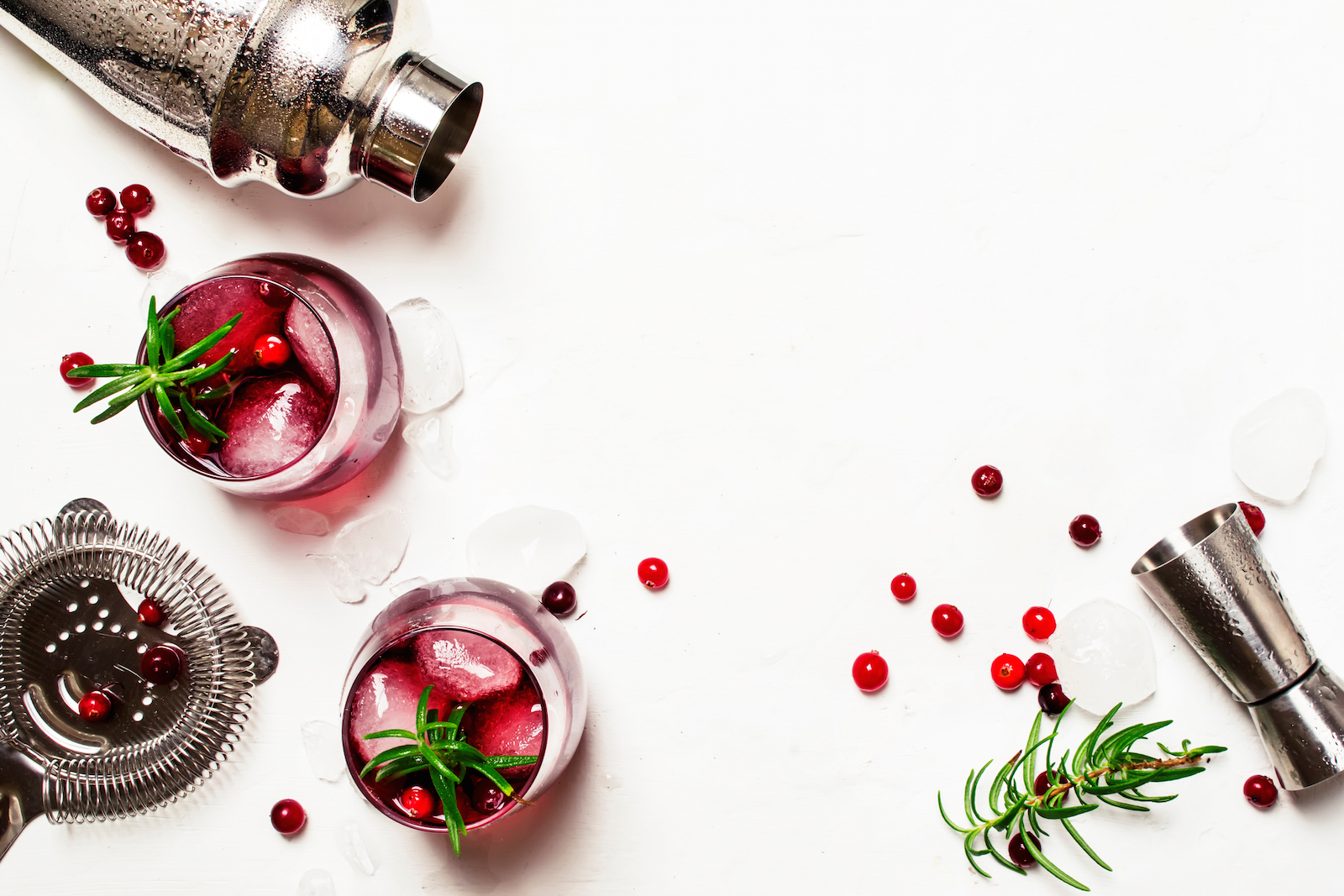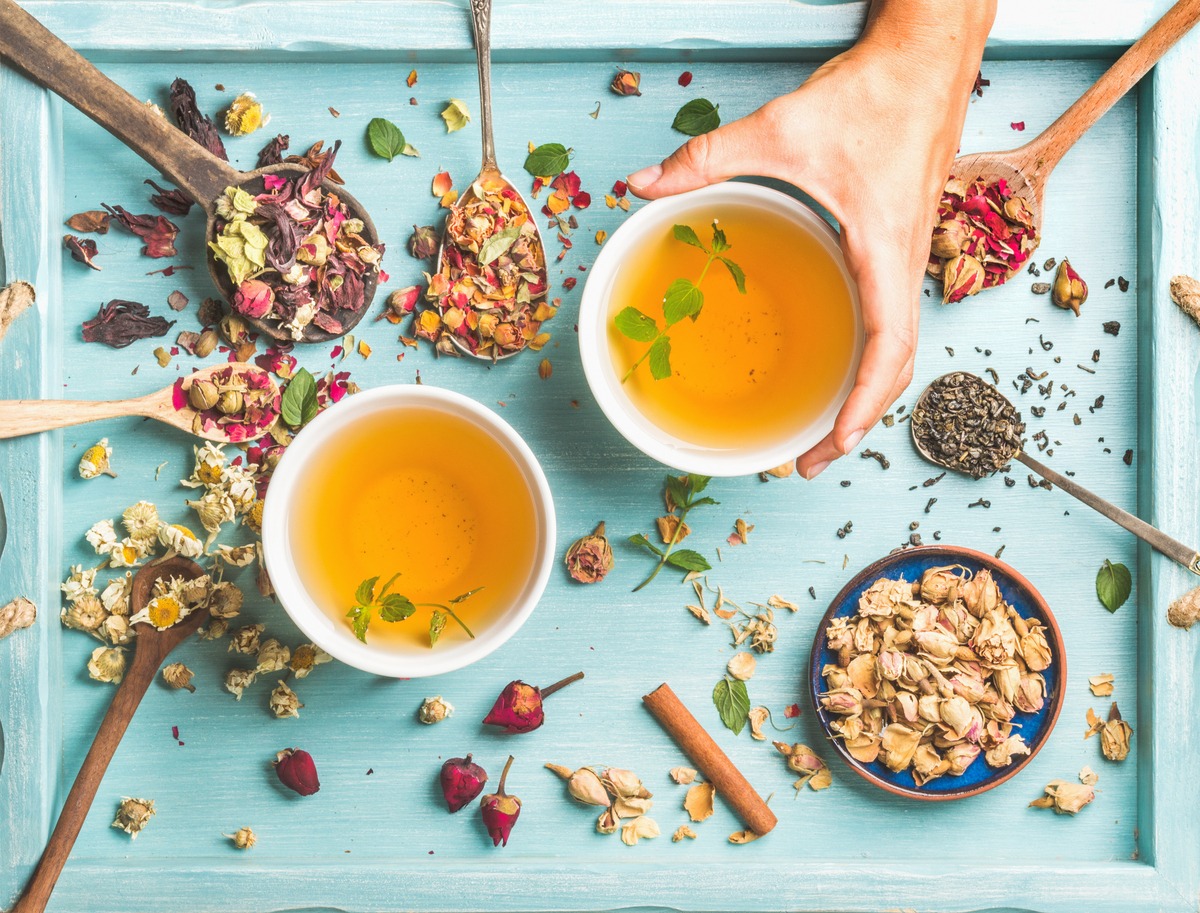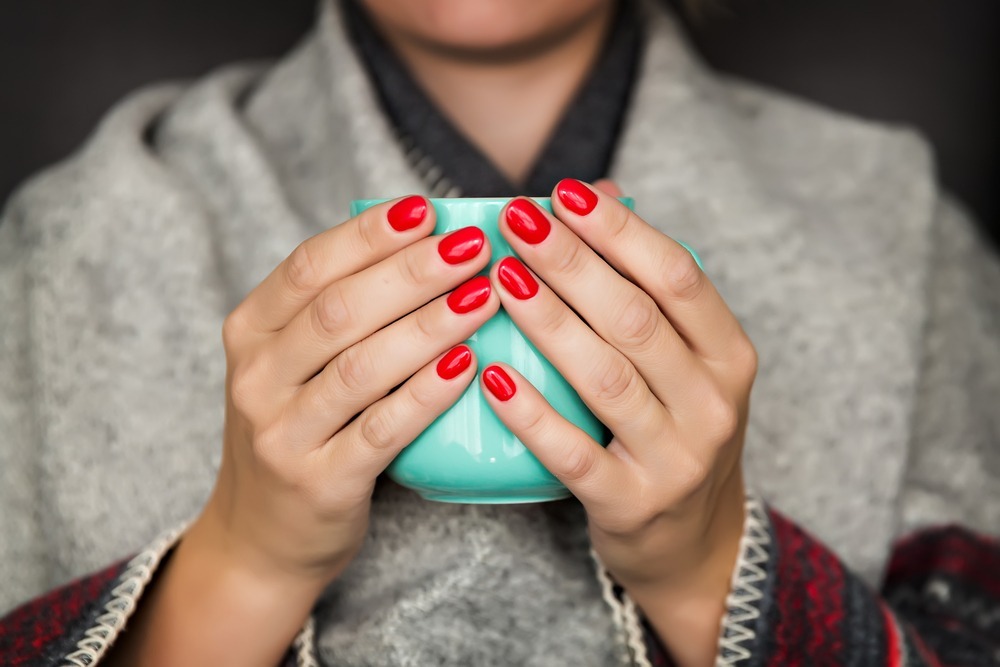Home » Drink Up » Hydration & Water » Should You Drink Water While Eating?
Ask Keri: I’ve heard it’s a bad idea to drink water while eating. Is this true?
Keri says: Hydration is one of my favorite topics, and I encourage you to be sipping on H2O as often as possible—that includes water during meals.
Read on to find out about the basics of digestion, the three most common myths about drinking water or other liquids during a meal, plus the benefits of drinking plenty of H20.
How Digestion Works
As you likely know, digestion starts in the mouth. As soon as food enters the mouth, it signals to the salivary glands to produce saliva. Within saliva are enzymes which start breaking down the food to make it easy to swallow.
The food then travels down to your stomach and gets mixed with gastric juices that break it down even more.
The next stop is the small intestine where digestive enzymes from your pancreas and bile from your liver enter the process. The food is broken down even further, readying the nutrients to be absorbed into the bloodstream.
3 Myths of Drinking Water While Eating
The misconception that you should skip fluids while you eat comes from some flimsy theses. Here we take a look at three of the myths surrounding drinking water with a meal and the science that debunks them.
Myth 1: It Hampers Your Digestion
There are claims that drinking water while eating can affect your digestion by diluting the acid and digestive enzymes your digestive tract uses to break down food. That, they claim, can prevent your body from absorbing nutrients properly and lead to bloating.
RELATED: How to Stop Bloating in 5 Easy Steps
But that theory is not supported by research, and even if we did find out there was some truth to it, the benefits of drinking water during meals would far outweigh that effect. (More on that later!)
Myth 2: It Negatively Affects Saliva Production
Water isn’t the only liquid claimed to affect digestion. Some people argue that drinking acidic drinks, such as alcohol, with meals dries up your saliva, which in turn makes it tougher to digest food.
While it’s true that alcohol does decrease saliva flow, it’s the higher alcohol concentrations found in hard liquor that are mostly responsible for this. There’s no scientific evidence that a glass of wine or beer with dinner (when consumed in moderate amounts, of course!) will negatively affect digestion.
Myth 3: Liquids Speed Up Stomach Emptying
This argument claims that drinking water or other liquids with meals will ramp up the rate at which food is moved through your digestive tract.
This is thought to cut down on the time the food comes in contact with stomach acid and digestive enzymes, thus leading to poorer digestion.
While this sounds feasible, the truth is that liquids have no effect on solids in the digestive process. While liquids obviously do pass through the digestive tract quicker than solids, studies have shown they don’t impact the digestion speed of food and how quickly it empties from your stomach.
Benefits of Drinking Water While Eating
Now that we’ve dispelled the three major myths surrounding drinking water and other liquids during a meal, let’s dig into the benefits of drinking while eating. Here we go:
Water Aids Digestion
Not only does drinking water with a meal not hinder digestion, it actually helps it. Water (and other liquids) help break down food so your body can better absorb the nutrients you’re eating.
Water Helps Prevent Constipation
Drinking water with your meal helps to move food through your digestive tract smoothly and softens your stool. So your water intake could actually prevent bloating and constipation. Score!
Water Helps Curb Weight Gain
Research has shown that water during meals can help curb weight gain by preventing overeating. (We’re talking about a couple glasses; don’t get so excited that you start chugging from that Swell bottle pre-dinner.)
RELATED: Does Drinking Water Lead to Weight Loss?
Finishing off a glass while you wait for your steak salad to show up? It turns out, that may cause you to feel full sooner. In one study, adults who drank water right before digging into dinner lost more weight than those who didn’t.
Other studies have shown that stopping for sips slows down the speed at which you eat, causing you to eat less overall. Eating at a slower speed allows you to check in with your hunger signals and usually makes a meal more enjoyable. And we all know enjoying what you eat is a big part of maintaining a sustainable, balanced diet.
Drinking Water Before, During and Between Meals: The Bottom Line
Finally, did I mention I LOVE talking about the overall importance of hydration? Drinking enough water throughout the day is associated with weight loss, improved moods and energy, and better skin.
With all that going for it, it definitely makes sense to keep it up before, during, and between meals.
More Reading
Feeling Dehydrated? Here’s How to Hydrate Like a Boss
(Image: Shutterstock)
About Keri Glassman, MS, RD, CDN
Keri Glassman, MS, RD, CDN, is a renowned celebrity nutritionist, healthy cooking expert, and wellness thought-leader. She is the founder and CEO of Nutritious Life and The Nutritious Life Studio, an online certification that provides unparalleled, forward-thinking education to individuals of various backgrounds looking to establish successful careers in the health and wellness industry.
RECENT ARTICLES

Want a sneak peek inside the program?
Get FREE access to some of the core training materials that make up our signature program – Become a Nutrition Coach.
Get Access Drink Up
Drink Up
